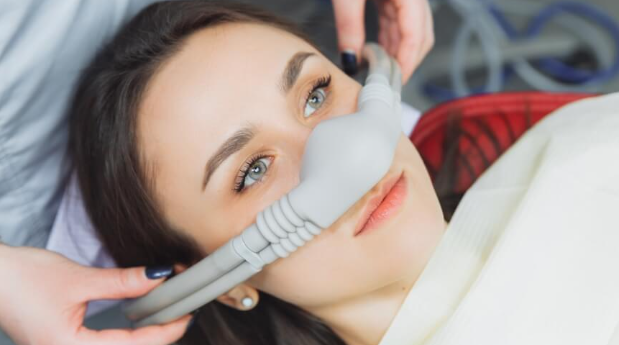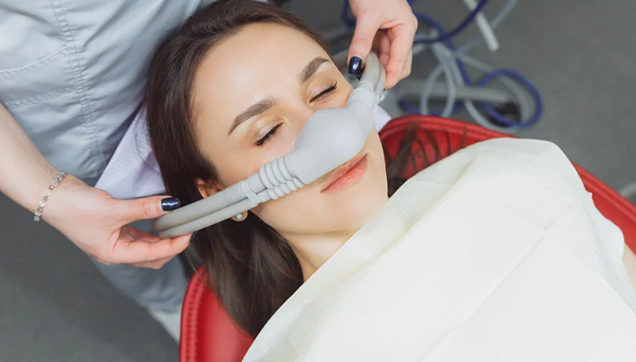Sedation
Sedation
Sedation is a procedure used to calm or reduce patient anxiety during medical treatments, including dentistry. The goal of sedation is to provide a sense of comfort and relaxation, helping patients cope more easily with procedures that may be uncomfortable or stressful.
Sedation may involve the use of medications that act as sedatives, which can be mild (such as diazepam) or stronger, depending on the patient’s needs and the type of procedure. It also helps reduce pain sensation and may cause amnesia for events during the procedure.
Sedation is particularly beneficial for patients with high anxiety, children, or those requiring longer or more complex procedures.
- Benefits of Sedation in Dentistry
- Anterograde Amnesia: Sedation can cause anterograde amnesia, helping patients not remember past procedures, thus reducing anxiety and stress before and after treatment.
- Reduction of Gag Reflex: Sedation helps reduce the gag reflex, making it easier for the dentist to work during procedures that involve the back of the mouth.
- Pain Relief: Sedatives provide a sense of comfort and pain relief, making dental procedures more tolerable for patients.
Dentist Can Work Faster: With a sedated patient, the dentist can complete procedures more quickly, increasing treatment efficiency
- Who Needs Sedation?
- Patients with high anxiety or fear of dental procedures.
- Those with special needs, such as children or patients with high sensitivity.
- Patients requiring long or complex procedures.
- What Types of Sedatives Are Used in Dentistry?
- Mild Sedatives (e.g., diazepam): help calm patients without causing loss of awareness.
- Moderate Sedatives (e.g., nitrous oxide – sedation gas): provide a sense of relaxation and reduce pain sensitivity.
- Intravenous Anesthesia: used to achieve a deeper state of sedation.
- Conclusione
If you are considering dental treatment in Albania, consult professionals such as dentists in Albania and take advantage of dental tourism in Albania for high-quality dental experiences.
Don’t waste time, schedule your appointment for a consultation with our doctors!
Welcome!


Frequently Asked Question
Is General Anesthesia Ever Used in Dentistry?
Yes, general anesthesia is commonly used for more complex procedures, for patients who cannot be sedated otherwise, or for those with special needs.
What Should I Do During Sedation?
- Before:
- Discuss your medical history and any medications you are taking with your dentist.
- Follow instructions regarding food and drink intake before the procedure.
- During:
- Relax and follow the dentist’s instructions.
- Inform the dentist if you feel unclear or anxious.
- After:
- Have someone help you get home, as you may feel drowsy after sedation.
- Follow post-procedure care instructions, including pain medication if necessary.



